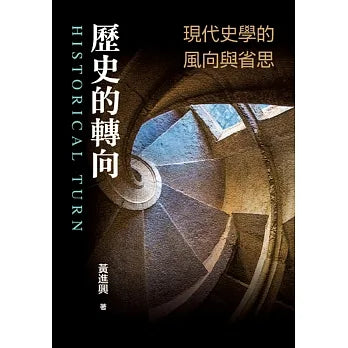WULOLIFE
《歷史的轉向:現代史學的風向與省思》作者: 黃進興 / 出版社:允晨文化
《歷史的轉向:現代史學的風向與省思》作者: 黃進興 / 出版社:允晨文化
Sale
Sold out
Regular price
€29,00 EUR
Regular price
Sale price
€29,00 EUR
Unit price
per
Tax included.
Shipping calculated at checkout.
Couldn't load pickup availability
Description
內容簡介
這本文集的主題毋論從大處著眼、或從特殊專題出發,不外是筆者聚焦兩次世紀之際(十九世紀末至二十世紀初葉,二十世紀末至二十一世紀初葉,史學學術風尚變化所作的省思;居中有破、也有立。此中,自然涉及史學與其他學科分分合合的故事。本書所選的十三篇文章,均是思索近年西方史學發展的趨勢,但願對中國史學的所借鑑,甚或助益。要言之,19世紀乃是西方史學的黃金時Leopold von Ranke, 1795–1886 (Theodor Mommsen, 1902) 1817–1903)得憑羅馬史的鉅著,獲頒諾貝爾獎的殊榮,便是一例。然而,反諷的是,自此史學的難以挽回頹勢。其故,無非世紀之際,新興社會科學的崛起;昔為「學問女王」(the Queen of Knowledge)的史學。而史學應付無方,歷史作為一門專業知識,致遭無用之譏。然而人類的活動原是時序的產物,欠缺歷史作為個人或群體記憶的指二十世紀末葉史學的發展居然峰迴路轉,起了極大的變化;原來失憶時間面向的人文及社會科學,終於覺進入了人文及社會科學「重新發—二十世紀晚期人文科學歷史意識的再興〉一文,以供學界參考。——黃進興
作者介紹
作者簡介
黃進興
中央研究院副院長、院士。
研究中國近世思想史、宗教文化史、西方史學理論,著有《歷主義與歷史理論》、《優入聖域:權力、信仰與正當性》、《聖賢與聖徒》、《後現代主義與史學研究》、《從理學到倫理學》、《學人側影》等書,著作有英文、日文、韓文等多語譯本。
學術論著外,尤擅散文寫作。嘗以「吳詠慧」為筆名,出版《哈佛瑣記》,風靡全球華文讀者,影響了一代又一代學子,餘音不輟。
黃進興
中央研究院副院長、院士。
研究中國近世思想史、宗教文化史、西方史學理論,著有《歷主義與歷史理論》、《優入聖域:權力、信仰與正當性》、《聖賢與聖徒》、《後現代主義與史學研究》、《從理學到倫理學》、《學人側影》等書,著作有英文、日文、韓文等多語譯本。
學術論著外,尤擅散文寫作。嘗以「吳詠慧」為筆名,出版《哈佛瑣記》,風靡全球華文讀者,影響了一代又一代學子,餘音不輟。
